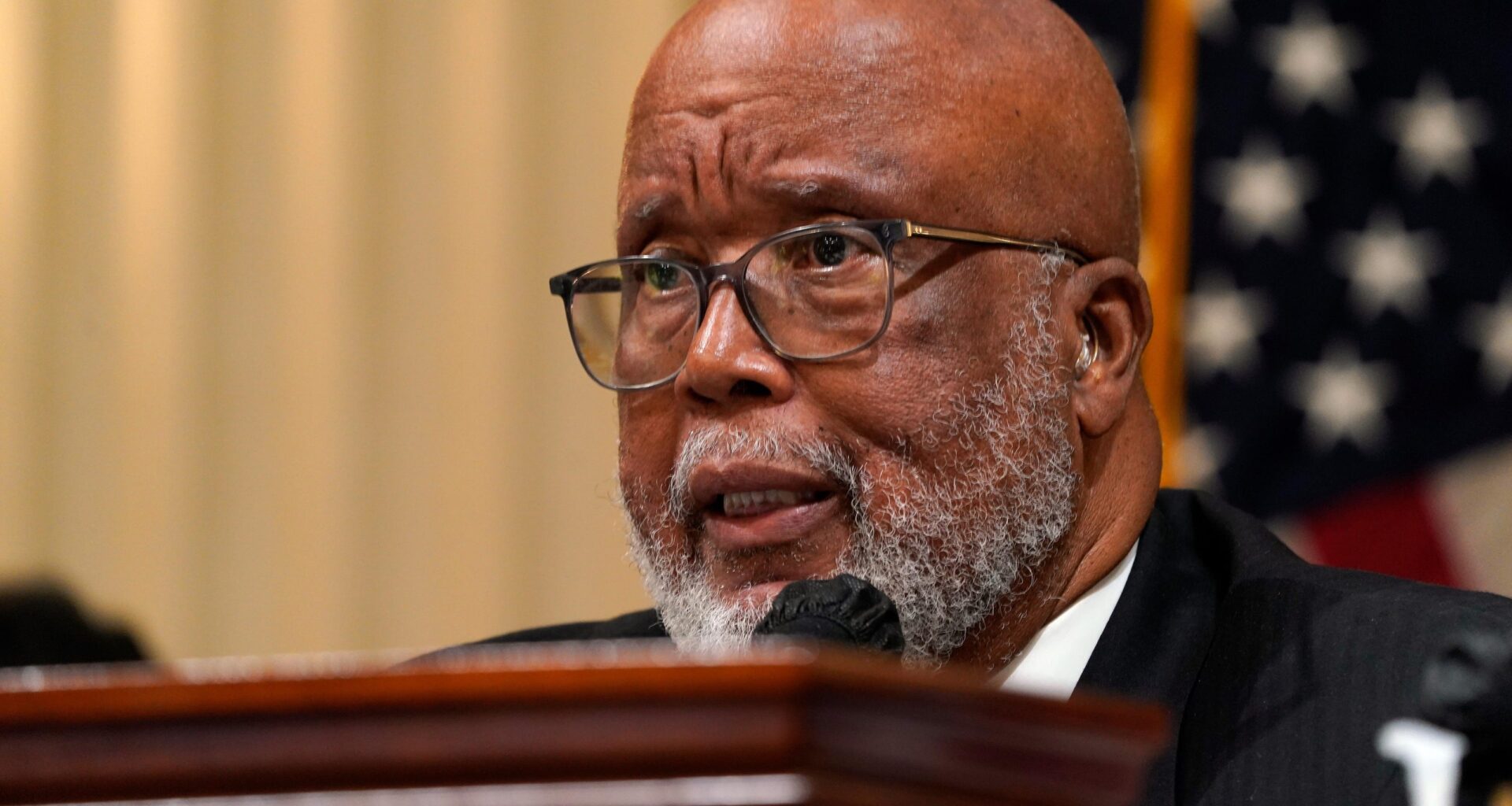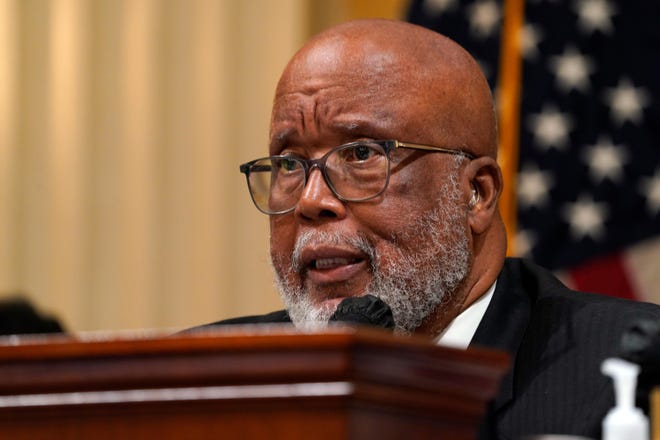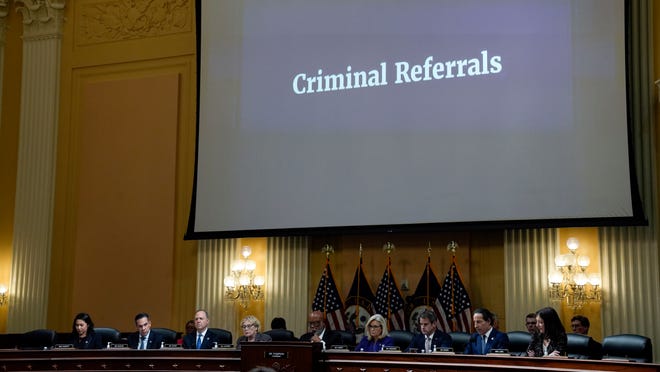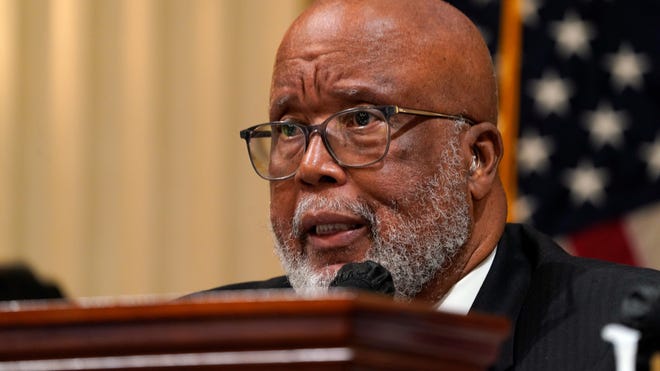
WASHINGTON ‒ Rep. Bennie Thompson, who led a House committee investigating the Jan. 6 riot, said there’s been an “uptick” in threating calls against members of Congress since President Donald Trump pardoned more than 1,500 people charged with attacking the U.S. Capitol four years ago.
“I think members of Congress are less safe because of the pardons that Donald Trump made,” Thompson, who led a House select committee that investigated the riot, told USA TODAY in an exclusive interview.
“He can have his opinion and the pardoning power is there, but these people either pled guilty or were found guilty. And what people saw with their own eyes on Jan. 6, 2021 really happened.”
Trump issued the pardons on his first day in office, calling those imprisoned, even those charged with violent crimes, “hostages.”
One was shot and killed a few days after his release, when state police in Indiana said he resisted arrest during a traffic stop, and another was still being held on gun charges in Florida.
Thompson of Mississippi was in the Capitol four years ago when the attackers broke through barriers, forced their way in and tried to enter the House chamber.
“It was unnerving,’’ Thompson told USA TODAY later that day. “Up until that point, most of us believed it was one of the more secure buildings anywhere in the world. Not just in Washington, not in the United States, but in the world.’’
Thompson, the highest-ranking Democrat on the House Homeland Committee, had also served as its chairman for years. Earlier this month, then President Joe Biden awarded Thompson the Presidential Citizens Medal, the country’s second highest civilian award, for his work on the Jan. 6 committee.
Biden also issued preemptive pardons for Thompson and other committee members, including former Republican Rep. Liz Cheney, the vice chair, to protect against any retaliation from Trump. Trump had said members of the now defunct committee should go to jail.
Thompson recently spoke to USA TODAY about the implications of Trump’s pardons. The interview has been shortened for clarity and brevity.
A new administration
Question: You didn’t attend Trump’s inauguration, which also fell on the holiday honoring Rev. Martin Luther King, Jr. Was that in protest much like in 2016 when you didn’t attend Trump’s first swearing-in?
Answer: I thought about it (attending), but then I looked at January, and obviously Martin Luther King, Jr. means a lot more to me than going to a presidential inauguration. I met him personally when I was a student at Tougaloo (College) and, unfortunately, I represented Tougaloo at his funeral. So there’s some real significance to that day for me.
Q: What do you think about the pardons?
A: I’m more concerned about those violent folks who broke into the Capitol, desecrated the Capitol, threatened staff, threatened members of Congress and assaulted the law enforcement people who were there, solely doing their job in defending the Capitol.
So to let those type of folk back out on the streets and somehow make them out to be heroes is absolutely disingenuous to who we are, not just as a country, but for a party that’s historically been pro law enforcement or Back the Blue. It shows the hypocrisy of what they do.
Q: When you said think members of Congress are less safe. Are you talking particularly about Democrats or all members?
A: When somebody ‒ like they did on Jan. 6 ‒ breaks into the Capitol, you have Democrats and Republicans in there so we all were at risk … If they feel that I can do this and Donald Trump is going to pardon me because he’s done it one time that puts members of Congress, the public and the people who work on Capitol Hill at risk.
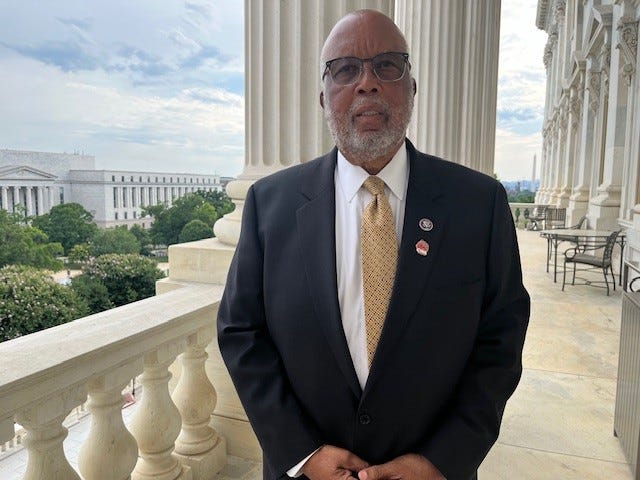
Q: We talked by phone on Jan. 6, 2021 about the uncertainty of what was happening, about the fear. Does this trigger anything for you personally?
A: The threat continues to be real … Now that Donald Trump is president again, the kind of talk he’s talking right now is that kind of talk that led to what happened on Jan. 6, 2021.
Q: Are you saying you’re worried that could lead to more of the same?
A: You heard the president say he wanted to be a dictator for a day. But you also heard him talk about retribution on the people that he didn’t like. Part of the retribution comes in the fact that you release people who are felons, who have a violent history, who attack law enforcement and that becomes part of the problem. You created that same kind of climate.
Q: You said people he didn’t like. I’m guessing you’re on that list.
A: He said he wanted Bennie Thompson, (former Congresswoman) Liz Cheney and others to go to jail. But he also said, Dr. (Anthony) Fauci, Gen. (Mark) Milley (former chairman of the Joint Chiefs of Staff). You can’t in a democratic society and you are supposed to be a leader, you can’t talk that way. That’s not who we are. The kind of conversation that I’m hearing from the White House at this point is not healthy for a safe democratic society.
Q: President Trump has brought up your name, Cheney’s and others, but why did you decide to accept Biden’s preemptive pardon and some of your colleagues didn’t?
A: I’m a Black man from Mississippi. I understand when people threaten you, you take them seriously. I understand when somebody says they want to do harm to you, want to send you to jail, you take it for what it’s worth. That’s how I looked at it. I think there are some protections around speech and debate as a member of Congress. The resolution spoke for itself and so we did our job and I’m fine with that.
As I said in my opening statement on that committee, I’m from a part of the country where the Ku Klux Klan was part of the suppression of Black voters and progress. And it’s in that spirit that I understand that had it not been for the federal government a lot of what people who look like Bennie Thompson enjoy would not have happened.
Q: It seemed like an extraordinary move to do that joint statement with Cheney. Did you feel compelled to it?
A: This wasn’t about Democrat or Republican. This a statement of principle by people who love this great country of ours.
Looking to the future
Q: You talk about Trump going after you and others, but are you worried about him going after witnesses and other folks who may not have the protections of Congress?
A: It’s not just witnesses, I think everybody is at risk. He’s president of the United States, and for him to start the first three years getting even with people and doing all that is not good. You won (the election) accept it and move on. But he can’t let it go. He cannot let it go. And we’re a better country than that. Normally, we settle our differences at the ballot box.
Q: What do you tell constituents, whether on MLK Day or any other time when you go back to Mississippi, what do you tell them about how to prepare for the next four years?
A: The beauty of this country is there are a lot of us who still believe in its greatness. We always look forward, we don’t look back. A lot of us would have wanted a different outcome in the last election, but it didn’t happen. We didn’t break into the United States Capitol. We didn’t assault the police. We go back to our respective districts and communities and talk about the future. And if you want to change things, you become a registered voter, you organize, and long term, you’ll have your opportunity with another election. I mean that that’s the American way.
